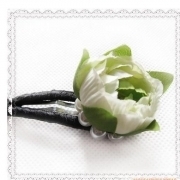[观察分析]
1. They agreed on the project at last.最后他们就这项工程达成了共识。
2. I agree with you =I agree with what you said.我同意你的话。
3. We agreed on a price for the car.我们商定了这辆汽车的价格。
4. The climate here doesn’t agree with me .我不适应这儿的气候。
5. Do you agree to that plan?你同意那个计划吗?
6. He has agreed to the arrangement?他已经同意了那个安排。
7. Do you agree with what I have just said ?你同意我刚刚说的吗?
8. Your story agrees with what I have heard.你说的话与我听到的一致。
[思考归纳]
1. 三个词组的词意是什么?
回答:agree with ,agree to ,agree on 都可以表示 _________;agree to 一般表示个人同意 ,而agree on 表示 ___________,达成共识。agree with 还可以表示与(气候或食物等)相__________.
2.三个词组在用法上有什么不同?
回答:agree with 后面一般跟_____或是某人说的____;后面还可以跟words。
agree to 后面一般跟建议、议案、________、_________等。
agree on 后面一般跟表示具体协议的文件、计划等。
determine 与decide 有何区别?
[观察分析]
1. We determined to get the work done before May Day.我们决定在五一之前把工作做完。
2. He has determined that nothing can prevent him doing what he wants to do .他已经决定没什么能阻止他想做的事情。
3. They determined on an early start Tomorrow.他们决定明天早点动身。
4. He has determined to study abroad. 他决心去国外学习。
5. He decided not to tell a lie any longer in the future.他决定以后再也不撒谎了。
6. Let’s first decide what to do next.让我们先决定接下来做什么。
7. Finally she decided on buying that green hat.最后她决定买那顶绿色的帽子。
8. It’s very difficult to decide between the two .要在两个之间抉择很困难。
[思考归纳]
1.decide 和determine 在意义上有什么区别?
回答:decide 和determine 在意义上都可以表示_______;be determined 表示_________。
2. 两者在用法上有什么不同?
回答:在用法上两者后面都可以跟________(to do sth )或是___________(比如that ,where,what …从句)
change …into …结构知多少?(put ,translate,turn,divide ,make …)
[观察分析]
1. Do you know how to change ice into water? 你知道如何把水变成冰吗?
2. He has translated many books into English? 他已经把很多本书翻成了英文。
3. The huts can be made into temporary houses.小屋能被弄成暂时可住的房子。
4. We will divide our class into four groups.我们将把我们班级分成四组。
5. We should put most of our time into our study and work. 我们应该把我们的把大部分时间花在学习和工作上。
6. The teacher often asks us to put sentences into English.老师经常叫我们把句子翻成英文。
7. He was able to put the complicated thoughts into simple words.他能用简单的话来表达复杂的意思。
8. The workers are making wool into cloth.工人们在把羊毛织成布。
9. We should learn to turn failure into success.我们应该学会把失败转变成成功。
10. She knows a way of turning water into steam.她知道一种方法,把水变成蒸汽。
[思考归纳]
这些词组的最基本的词义是什么?
这些词组都是有into 构成的,都是两样东西之间进行的转换,最基本的词义应该是________.
reach 的含义知多少?
[观察分析]
1. After a long walk, we reached a small village. 走了很长的路之后,我们来到一个小村庄。
2. The little boy was so short that he could not reach the apple on the desk.那个小孩太矮了,够不到桌上的苹果。
3. Your letter reached me the day before yesterday .我昨天收到了你的信。
4. The woods reached as far as the river. 那片树林一直延伸到河边。
5. He reached out his hand for the knife ,but it was too far away. 他伸出手去取那刀子,但是太远了,够不着。
6. Would you please do me a favour to reach me that book?请你帮我个忙,把书递给我好吗?
7. I like to have my books within my reach.我喜欢把书放在我伸手可取的地方。
8. Put the medicine out of the children’s reach..把药品放在孩子们够不着的地方。
[思考归纳]
1.当reach用作动词,是什么含义,如何使用?
回答:当reach用做________后面直接跟宾语,意思是______。
2.当reach用作名词,是什么含义,如何使用?
回答:reach 可以用作名词 一般是 __________,通常用于out of one’s reach ,within one’s reach。
compare …to …与compare … with…
[观察分析]
1. My handwriting can not be compared with my fathers. 我的书写不能跟我父亲的比。
2. Compare this radio and that one ,and you will find which one is better. 比较一下这个收音机和那一个 ,你会知道哪个更好。
3. Man’s life is often compared to a candle. 人生常比作蜡烛。
4. Shakespeare compared the world to a stage.莎士比亚把人世比作舞台。
5. As a writer ,he can’t compare with Luxun. 作为一个作家,他无法与鲁迅比较。
[思考与归纳]
compare … to …与compare …with …意义有什么区别?
回答:compare …to …一般是把一方____另一方;而compare …with …是指把两方进行_____。
hope 与 wish 用法探究
[观察分析]
1. I hope we can pass the examination.我希望我能通过考试。
2. We hope to see you tomorrow. 我们希望明天能见到你。
3. There is nothing to be hoped for. 没什么好期待的了。
4. The doctor expressed strong hopes for her recovery.医生对她恢复健康抱有乐观的希望。
5. I wish I could go with you .我希望我能跟你一起去。
6. How I wish it wasn’t raining. 我多么希望天不下雨啊。
7. Parents wish their children to be happy always.父母们总是希望孩子们能一直快乐。
8. I wish you a pleasant journey. 祝你旅途愉快!
9. It’s hoped that our team will win the game.大家都希望我们队能赢的比赛。
10. I wish I could fly to the moon one day 我希望有一天我能飞到月球上去。
[思考归纳]
1. wish与hope分别是什么意思?
回答: wish是指的意思是________。而hope指的意思是________。
2. wish与hope 在用法上有什么不同?
回答: wish和hope一样都后面可跟_______( to do sth.)但是wish可用于wish sb to sth,而hope只可以跟说hope to do sth。两者后面也可以跟_____从句:wish后面跟的从句一般用____语气,从句里的时态一般用过去的某种时态。而hope后面的从句根据句子的需要可以用________。
常用的祝福语知多少?
[观察分析]
1. Good luck!祝你好运!
2. Good luck with your trip!祝你旅途顺利。
3. I wish you good luck /success! 祝你好运/成功!
4. Good journey !旅途愉快!
5. Have a good trip !旅途愉快!
6. Have a nice/good time .玩得愉快!
7. I’d congratulate you on your success!祝贺你成功。
[思考归纳]
祝福语一般用什么句式?是什么语气,什么意思?
回答 :祝福语一般用祈使句。一般表示说话人对于对方的一种_______。
instead与instead of有何区别?
[观察分析]
1. He is tired, and let me do it instead.他累了,让我代做吧 。
2. If we can’t go to Nanjing ,we’ll to go to Shanghai instead. 如果我们不能去南京,那就去上海。
3. I can go to the meeting instead of my sick brother. 我可以代我生病的兄弟去开会。
4. She went to school instead of staying at home. 他没呆在家里而是去上学了。
5. I like Chinese instead of maths.我喜欢语文,而不是数学。
6. It will take days by car, so let’s fly instead.开车去要好几天,我们还是坐飞机吧。
7. Instead of lending a hand, he laughed at us.他不仅没有帮我们,反而嘲笑我们。
8. We’ll have tea in the garden instead of in the house.我们将在庭园里而不是在房子里喝茶。
[思考归纳]
1. Instead 和instead of 分别是什么词性和意思?
回答:instead 是_____,表示________;instead of 是介词词组,表示_________。
2. 如何使用这两个词组?
回答:instead 位置比较灵活,可放在_________.instead of 后面一般可跟名词、______、形容词、________等。
be sure ,be sure of ,be sure to do,make sure
[观察分析]
1. I am sure that we can overcome all the difficulties.我肯定我们能战胜一切困难。
2. He is always sure of his success.他一直对自己的成功很有信心。
3. Our team is sure to win the game.我们队一定会赢得这场比赛。
4. It’s sure to rain soon.天一定要下雨了。
5. We are not sure what to do next. 我们不肯定接下来做什么。
6. Can we be sure of his honesty?我们能够确定他是诚实的吗?
7. We should make sure that all the windows and the doors are closed when we leave.我们应该确定在我们离开之前要把所有的门窗关好。
8. Make sure that the thief don’t escape. 当心那个贼跑掉。
[思考归纳]
1. 这些词组分别是什么意义?
回答:be sure 表示对某件事情有_______。Be sure of 表示对某人或是某物有_______. Be sure to do 表示说话人对主语做某事有_________某人或是某物一定能做某事。Make sure 表示_________。
2.这些词组分别如何使用?
回答:be sure后面一般可跟_________例如that,when,where等引导的从句。Be sure of 后面一般跟_________________作宾语。Be sure to 后面跟的是_________.make sure 后面一般跟_________。例如 that when等引导的从句,从句的时态往往用现在时态。
hurt ,wound ,injure 同样是“伤”,意义有别
观察分析
1. He hurt his back when he fell.他摔倒的时候背摔坏了。
2. The old lady was hurt by his words.那个老太太被他的话伤害了。
3. He got wounded in the fighting.他在打动中受伤了。
4. He died of a shoot wound in the war.在那次战争中,他死于枪伤。
5. The passenger was badly injured in the car accident.那个乘客在车祸中严重受伤。
6. My shoes are so tight that my feet hurt.我的鞋太小了,脚都疼了。
7. You will injure your health by smoking too much.你吸烟太多,有伤身体。
8. His failure injured his pride.他的失败伤了他的自尊。
9. I didn’t mean to hurt your feelings.我没想要伤害你的感情。
10. He was wounded in the leg.他的腿负伤了。
[思考归纳]
hurt,wound,injure意义有什么不同?
三者都可表示受伤,伤害。hurt可指对身体上的伤害,也指对______造成的伤害。wound一般指外伤,如______________等,尤其指在战争中,打斗中受伤。injure 一般是指在_________中受伤。
receive和accept用法辨析
[观察分析]
1. I received a letter from him this morning. 早上我收到了他的来信。
2. We received much help from our teachers. 我们获得了老师很多的帮助。
3. The scientist received a warm welcome .那个科学家受到了热烈欢迎。
4. He received a good education at school.他在学校里得到了良好的教育。
5. He accepted a present from his friend.他接受了他朋友的礼物。
6. Will you accept his apology? 你会接受他的道歉吗?
7. I can’t accept you as my assistant.我不同意你做我的助手。
8. I accept your offer.我接受你的提议。
9. The new theory is widely accepted. 这个新的理论被广泛接受。
10. He received many gifts ,but he did not accept all of them. 他收到了很多礼物,但是他并没有收下。
[思考归纳]
两者的意思有何区别?
receive 指客观上________;accept指主观上_________.
believe和believe in 用法不一样
[观察分析]
1. Long ago ,people believed that the world was flat.很久以前,人们相信地球是扁平的。
2. I can quite believe you .我很信得过你。
3. We believe him to be honest.我们相信他是诚实的。
4. I don’t believe in fate. 我不相信命运。
5. Do you believe in the Bible?你相信《圣经》吗?
6. I don’t believe what you have said because I don’t believe in you .我不信你说的话,因为我不信任你。
[思考归纳]
believe 和believe in 在意义上有何区别?
believe一般是指相信某人_______;believe in 一般指_______某人或是对某种理论的____。
情态动词+have done结构的含义及其运用
[观察分析]

1. You should have finished your homework earlier.你应该早就把作业做好了的。
2. It is wet on the ground .It must have rained last night.地上湿的。昨晚一定下雨了。
3. He is a successful businessman. In the past years, he must have worked very hard.他是一个成功的商人。在过去的几年里,他一定工作很努力。
4. There is no light in his house. He might have gone out.他的房子里没有灯光。他可能出去了。
5. You are late again. You shouldn’t have got up so late. 你又迟到了。你不该起的这么晚。
6. You needn’t have lent the book to him. He has got it.你不必把书给他的。他已经有了。
7. You are not an honest girl. You ought not to have told lies to others.你不是个诚实的女孩子。你不该跟别人撒谎。
8. Can’t you see the sign – No Smoking ? You ought not to have smoked here .你没看到那个标志吗?你不该抽烟的。
[思考归纳]
问题1.should / ought to / might /need 等 +have done 表示什么含义并如何运用?
回答:这样的句型常用来表示该做的/可能要做的/需要做的事情,没有做或发生的时候;他们的否定形式表示不该做或发生的事情而___#_____。
问题2. must +have done 什么含义如何运用?
回答:这样的句型常用于______:对于发生了或是已经发生的事情的猜测。
29,初探“with everyone clapping and having fun”结构
[观察分析]
1. With the spring coming, the trees turn green.春天来了,树木变绿了。
2. It’s impolite of you to sit with your feet pointing to others.你坐着用脚指着别人是不礼貌的。
3. He soon fell asleep with the lights still burning.他很快就睡着了,灯还亮着。
4. He lay on the grass ,with his eyes looking at the sky.他躺在草地上,眼睛看着天空。
5. The parents went out ,with their children staying at home .父母们都出去了,孩子们呆在家里。
[思考归纳]
1. 这个结构是如何构成的?
回答:with 是_____后面跟名词、代词做______,然后后面再跟动词的______形式做宾语_____。(因为宾语和动词在逻辑上有_______关系。)
2. 这个结构在句中表示什么意义?
回答:整个with结构在句中一般作______。例如方式状语、伴随状语等。
break up和 break down 用法辩异
[观察分析]
1. The ship broke up on the rocks.船触礁破裂了。
2. What broke up their friendship?谁破坏了他们的友谊。
3. Their marriage broke up . 他们的婚姻破裂了。
4. The police had to use force to broke up the crowd警察不得不用武力驱散人群。.
5. I am sorry to arrive late, but my car broke down halfway.抱歉我来晚了,我的车在半路上坏了。
6. The peace talks broke down without any agreement being reached.和谈失败了,没有达成任何协议。
7. I can’t have you breaking down in health.我不能让你的身体一天天垮下去。
8. Sugar and starch are broken down in the stomach.糖和淀粉会在胃里分解。
思考归纳
这两个词组分别是什么意思?
break up 是指__________________。例如解散人群,关系破裂、某物破碎等。
Break down 是指________________。例如车发生故障,计划等失败、身体垮了、分解物质等。
matter一词值得一探
[观察分析]
1. Is anything the matter ? 有什么问题吗?
2. You look a bit pale. What’s the matter with you ? 你看起来脸色有点苍白。 你怎么了?
3. There is an important matter I would like to talk to you about.有一件重要的事情我要跟你讨论。
4. It doesn’t matter whether it rains or not tomorrow.明天是否下雨没什么关系的。
5. It doesn’t matter that you came late. 你来晚了没什么关系。
6. Pain doesn’t matter to him. He is very strong.痛苦对他来说没什么关系。他身体很强壮。
7. It doesn’t matter to me which one you choose.对我来说你选择哪一个都 没关系。
8. No matter what you do ,I won’t forgive you.不管你做什么,我都不会原谅你。
9. No matter where he is ,I will find him.不管他在哪,我都会找到他。
10. No matter how late you come, I will wait for you .不管你来得有多晚,我都会等你。
[思考归纳]
1. 当matter 用作名词是何意义?如何使用?
回答:matter用作名词表示_________,一般在句中用的时候要在matter的前面加上________。
2. 当matter用作动词是和意义?如何使用?
回答:matter用作动词表示________,一般用于否定句或是_______;后面可以跟what ,where,when ,whether等引导的从句。
3. no matter 引导的是什么从句,在句中做什么成分,如何来构成。
no matter 一般引导__________从句,它后面可以跟_______________________等引导的从句
to one’s surprise 结构知多少
[观察分析]
1. To my surprise , he could escape from that big fire.令我惊讶的是,他能够从那场大火里逃脱出来。
2. To our great surprise, our team won the football match. 令我们很吃惊的是,我们队赢了足球赛。
3. To my joy, I could pass the difficult math exam.令我高兴的是,我能 通过那次很难的数学考试。
4. To his sorrow, his whole house was destroyed in the earthquake.令他悲伤的是,他的整座房子都在地震中毁掉了。
5. To her delight, she has got a new job in the company.令她高兴的是,她在那个公司里找到了一个新工作。
6. To our satisfaction, he could get the first prize in the competition. 我们满意的是,他在比赛中获得了一等奖。
7. To his amazement, his parents got him in such a short time.令他吃惊的是,他的父母亲在那么短的时间里就回来了。
8. To our excitement, we won the battle against the enemies.令我们激动的是,我们赢得了跟敌人的战斗。
[思考归纳]
to one’s surprise 类似的结构是怎样组成的,表示什么意义并如何使用?
回答:这样的词组一般是to 后面跟______ +表示感情或是情绪变化的____ ,通常表示某人的一种情绪和感情。一般在句中作 _________。
have sb do 与 have sb doing 用法比较
[观察分析]
1. The boss often has workers work for a long time.那个老板经常让他的工人长时间工作。
2. I would like to have him help me to finish the work.我想让他帮我完成那个工作。
3. Who would you rather have post this letter ? 你想让谁帮你寄这封信?
4. Don’t have the machine working all the time.不要让这个机器一直在运转。
5. It’s impolite to have him waiting outside for such a long time.让他在外面等这么长时间是不礼貌的。
6. You should be careful! Have the fire burning till tomorrow morning.你应该小心。让火一直燃烧到明天早上。
[思考归纳]
1. 两个词组分别是什么意义?
回答:have sb do 表示_________ 与 make /let sb do 近义;have sb doing 表示_________。与keep sb doing 近义。
2. 两个词组在用法上有什么不同?
回答:前者表示让某人去做了某事,所以用________(have sb to do );后者表示让某人一直做某事,所以用__________(have sb doing)
初探现在分词作状语
[观察分析]
1. He came running back to tell us the news. 他跑着回来告诉我们这个消息。
2. Playing all day, you will waste your valuable time.如果你整天玩,就会浪费你的宝贵时间。
3. He husband died ,leaving her with five children.她丈夫死了,留下了她和她的五个孩子。
4. Knowing that they were going there ,the students began to make preparations.当学生们知道他们要去那儿,就开始作准备了。
5. Not feeling very well, he went to see the doctor.因为感到不舒服,他就去看医生了。
6. Being ill ,he didn’t go to school.因为生病,他就没去上学。
7. Being afraid of his parents, he didn’t go downstairs.因为害怕他的父母,他没有下楼下楼。
8. Reading English novels , he seldom looks up new words in a dictionary.他看小说时很少少查字典。
[思考归纳]
1. 在句中为什么要用现在分词做状语?
回答:如果分词的逻辑主语和句中的主语是________,那就用现在分词在句中状语。
2. 现在分词在句中可以作什么状语?
回答:现在分词在句中可以做__________________________。
35,初探what引导的名词性从句
[观察分析]
1. What he said is true.他说的是真的。
2. What really interested him was to travel outside. 确实能吸引他的是出去旅游。
3. Do you know what we are going to do this evening.你知道今晚我们要做什么吗?
4. What he does is also what I want to do . 他做的就是我想做的。
5. You are welcome. That’s what I should do .你太客气了啊。是我应该做的。
6. He didn’t know what was the matter.他不知道发生什么了。
7. That’s what I am doing now.那就是我现在在做的事情。
8. Our city is not what it used to be .我们的城市再也不是过去的那个样子了。
[思考归纳]
`1. what引导的名词性从句在句中可做什么成分?
回答:what引导的名词性从句可以在句中做_______、________、________等。
2这些名词性从句中,什么时候用what来引导?
回答:首先,判断这些从句是什么从句,再结合中文意思,最后去分析从句的结构。What在句中可以作 ________、_________ 、________等。
in order to, in order that, so that 与 so as to用法探异
[观察分析]
1. People must eat in order to live.人们必须吃饭才能生活。
2. He works very hard in order to support his family.他努力工作是为了养家糊口。
3. He got up very early in order to catch the first bus.他起的很早是为了赶上头班车。
4. We should work hard in order that we can pass the exam.为了能通过考试,我们应该努力学习。
5. They talked in a very low voice in order that they could not be heard.为了不让别人听见他们讲话,他们用很低的声音讲话。
6. In order to get home on time, he didn’t rest on his way . 为了能够准时回到家,他在路上都没有休息。
7. We hurried so as to be in time.我们赶紧走,好及时到。
8. Speak clearly so that everybody can understand you .请说清楚点,这样每个人都能明白你。
9. He often told lies,so that no one believe him .他经常撒谎,都没人相信他。
10. Please wear your sun glasses so that the sun won’t burn your skin.请带上太阳眼镜,这样太阳就不会晒伤你的皮肤。
[思考归纳]
1. 这些词组是什么意思?
回答:这几个词组在意思是差不多的,都表示__________。
2. 这些词组在句中作什么成分?用法上有什么不同?
回答:这些词组在句中一般做状语,表示______。so as to 和 in order to 后面一般跟________;前者引导的动词不定式不可放在______,而后者引导的可放在______。so that 和in order that 一般后面跟_______。
 爱华网
爱华网



